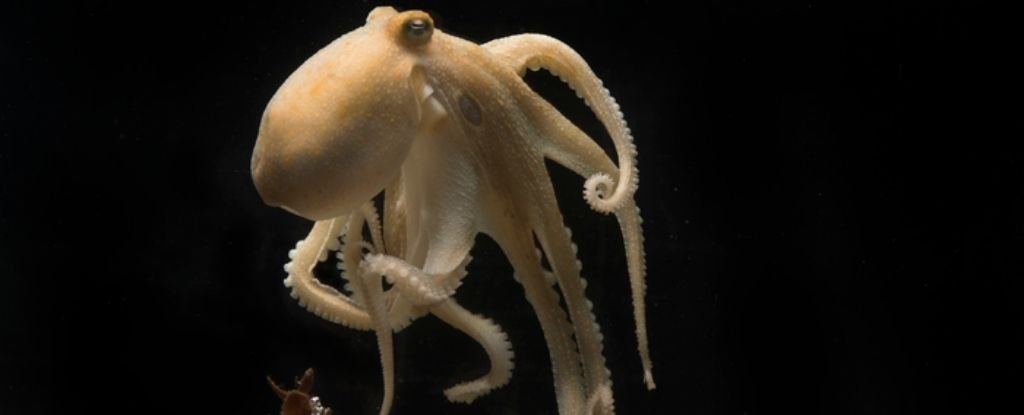Products You May Like
Octopuses are doomed to be orphans from a very young age. After a female octopus lays her eggs, she stops eating and begins self-mutilating, tearing off her skin and biting off the tips of her tentacles.
By the time a young octopus wriggles out of its egg, its mother is already dead. A few months later, its father will die, too.
The short and grim life of the octopus has long fascinated scientists. In 1944, researchers hypothesized that mating was somehow hitting a molecular “self-destruct” button within the sea creatures.
It’s taken nearly 80 years, but that vague hypothesis is at last taking shape. Researchers have recently figured out that mating seems to change several critical biochemical pathways based on cholesterol into various hormones in female octopuses.
“We know cholesterol is important from a dietary perspective, and within different signaling systems in the body too,” explains molecular biologist Z. Yan Wang, who conducted the research while at the University of Chicago.
“It’s involved in everything from the flexibility of cell membranes to production of stress hormones, but it was a big surprise to see it play a part in this life cycle process as well.”
Among humans, some precursors of cholesterol are toxic at high levels. Genetic disorders that increase cholesterol metabolism can therefore result in grave developmental and behavioral issues, including repetitive self-injury and feeding impairments. Severe cases can even be life threatening.
The symptoms are oddly reminiscent of female octopuses in their final days, which suggests researchers might be onto something.
It’s taken years to get here, and in large part, that’s because of a small and under-appreciated organ found in octopus and squid.
In 1977, researchers figured out that the optic gland somehow plays a role in an octopus’s programmed death.
This organ is similar to the pituitary organ in humans. It sits between the octopus’s eyes and it is linked to sexual development and aging in cephalopods. When it is removed from a female octopus, the creature lives several months after laying her eggs.
In 2018, scientists took this knowledge and sequenced the RNA of two optic glands from two female octopuses in differing stages of decline.
As an octopus neared death, the authors noticed higher levels of activity in several genes that control for sex hormones, insulin-like hormones, and cholesterol metabolism.
Now, a few years later, some of the same researchers have directly analyzed the molecules secreted from this organ in both mated females and unmated females.
After mating, its appears the optic gland really does secrete more sex hormones, insulin-like hormones, and precursors of cholesterol.
All three of these molecules could ultimately contribute to signaling systems that trigger death. Or, perhaps it is merely the accumulation of these molecules in the octopus’s body that is lethal, as is the case in humans.
While the optic gland has previously been linked to the production of sex hormones in cephalopods, the other two pathways have only recently been identified in the “self-destruct” sequence.
In the future, Wang and her colleagues are hoping to look further ‘downstream’, to see what other molecules are part of this strangely timed death.
“What’s striking is that [octopuses] go through this progression of changes where they seem to go crazy right before they die,” says neurobiologist Clifton Ragsdale from the University of Chicago.
“Maybe that’s two processes, maybe it’s three or four. Now, we have at least three apparently independent pathways to steroid hormones that could account for the multiplicity of effects that these animals show.”
Wang says she is particularly excited that two of the pathways her team has identified are known from other studies in rodents.
“[N]ow there’s evidence from our study that those pathways are probably present in octopuses as well,” says Wang.
“It was really exciting to see the similarity across such different animals.”
The study was published in Current Biology.
